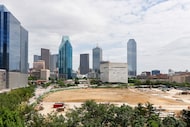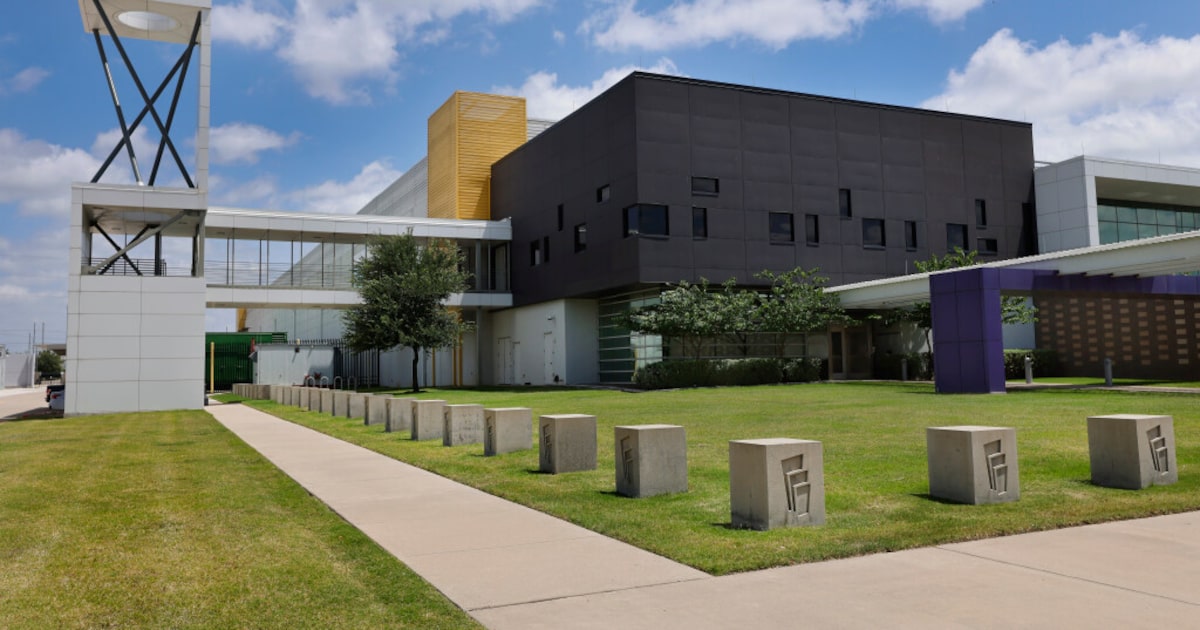The Dallas-Fort Worth labor market is rebounding from June’s surprising loss of statewide jobs, with the area largely inoculated from deteriorating labor conditions at the national level.
On Friday, U.S. government data showed the nation’s employers added a slim 22,000 to payrolls, the latest confirmation that tariffs are slowing growth and stoking higher inflation. It also reflected a trend seen in other high-frequency labor figures that suggests job creation is faltering.
Although unemployment sits at 4.3%, that’s nearly a full point above the 55-year low of 3.4% seen in April 2024. The surprisingly weak data print shook markets, sending blue-chip and technology shares sharply lower and crude as well, while pushing bond yields down.
However, the Lone Star State economy is mimicking — yet not entirely mirroring — the tempered growth prospects of the country at large, while retaining clear pockets of strength. Texas’ labor market added 8,700 jobs in July, according to Texas Workforce Commission data, with statewide unemployment sitting at 4.2%.
Business Briefing
“Even with a slight dip in the labor force last month, Texas continues to create jobs, a testament to the resilience of our workforce,” said TWC Commissioner Representing Labor Alberto Treviño III, in a statement.
Related

At 4%, unemployment in the Dallas-Fort Worth area is still more favorable than a year ago. While joblessness is not as low as in other areas of the state, TWC data shows the region enjoys the highest concentration of civilian workers in Texas by far.
Key pillars of strength in North Texas continue to be financial services, and the boom of data centers powered by the buildout of artificial intelligence. That’s providing ballast for other sectors like construction, real estate and manufacturing.
“Some of the largest financial institutions in the world are betting big on Dallas, and it’s easy to understand why,” according to Sasha Stratton, head of the Dallas office of Selby Jennings, a global finance talent recruitment firm.
“With its attractive commercial real estate, low taxes and strong talent pipeline at competitive rates, the Lone Star State has proven itself to be one of the most pro-business areas of the United States,” she told The Dallas Morning News in an email.
Defying gravity
The D-FW economy is steadily adding new companies, while existing employers are adding to positions and shuffling assets in ways that — at least for now — are offsetting job losses in other industries.
This week, Canada’s Scotiabank finalized plans to plant roots in Dallas, bringing over 1000 high-paying jobs with them. And merger activity in the Lone Star State has also proven resilient amid spotty Wall Street dealmaking and ongoing interest rate uncertainty.
Over a dozen deals valued at $1 billion or more involving Texas companies have been announced since July 1, according to a report in The Texas Lawbook.
“One thing Dallas can offer finance professionals that traditional financial hubs cannot is the chance at a higher quality of life while earning less money. This is largely due to the combination of no state income tax in Texas and a considerably lower cost of living,” said Stratton.
“All of these factors have attracted professionals to the D-FW area and therefore made it easier for firms to find local talent with the skillsets they desire. The demand is increasing at the same pace, however, making competition fierce.”
Separately, consumer wearables company OURA is building a facility in Fort Worth in service to a contract with the U.S. Department of Defense, which is expected to add more tech-related employment.
And Dallas-based Carvana last month announced plans to consolidate its inspection capabilities with its wholesale auction site. The move will add to the company’s existing hiring plans and create about 150 new entry-level and skilled positions.
Nevertheless, questions remain about how much longer the Lone Star State can continue defying gravity if the U.S. economy swoons into a downturn.
The Federal Reserve Bank of Dallas’ latest Texas Employment Forecast indicates jobs will rise 1.5% in 2025, but that’s less than the 1.7% growth forecast last month.
“Employment growth seems to be softening and is on a slower growth trajectory for the second half of the year,” Luis Torres, Dallas Fed senior business economist, said in a statement.
“With employment growth decelerating, year-to-date job growth is 1.6%, below its long-term trend of 2%,” he said, adding that jobs in areas like fossil fuels, manufacturing and education are leading the slowdown.
